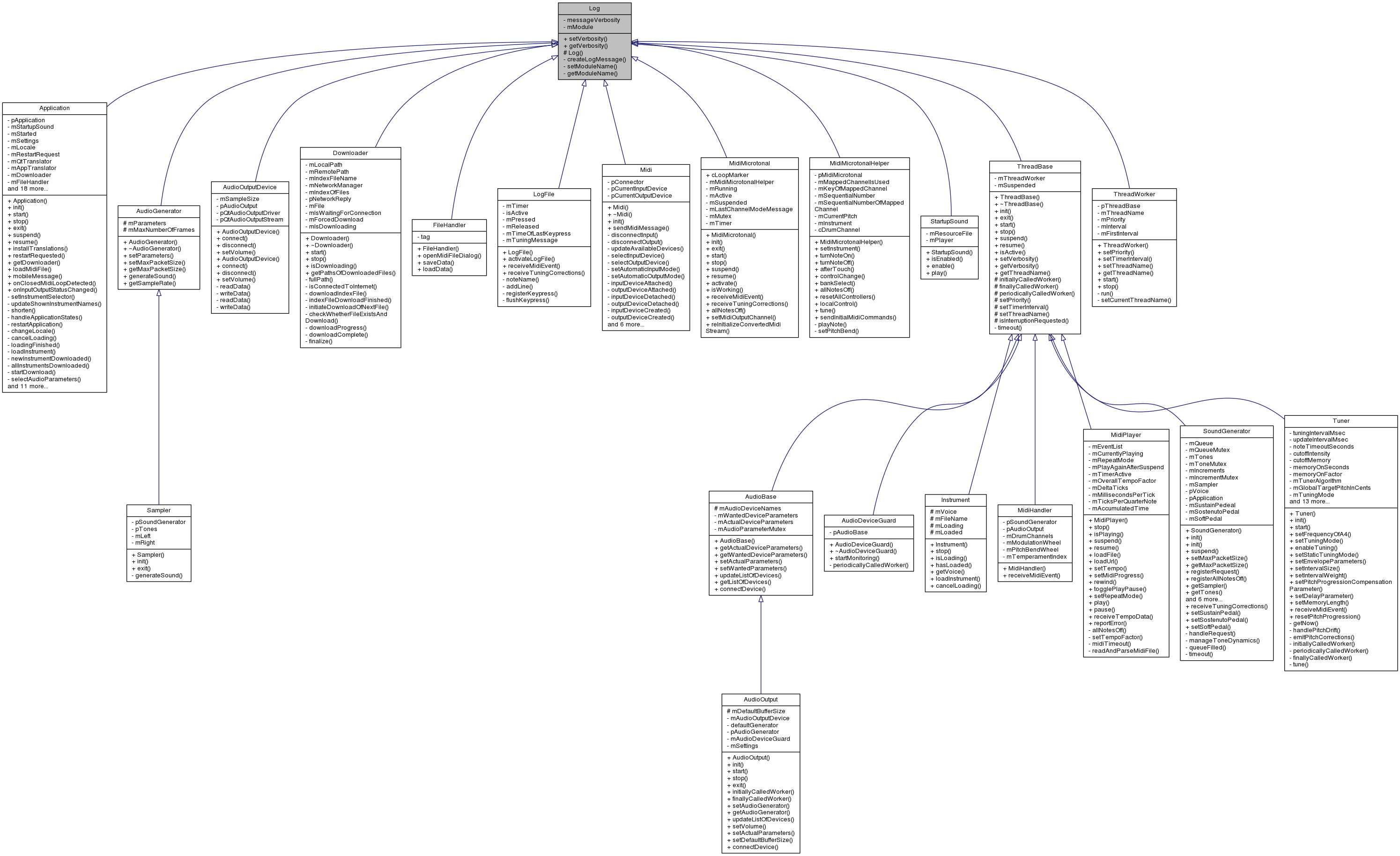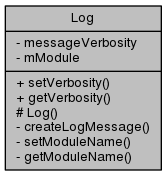 |
Just Intonation
Version 1.3.1 (19)
Explore key-independent dynamically adapting tuning in just intonation
|
 |
Just Intonation
Version 1.3.1 (19)
Explore key-independent dynamically adapting tuning in just intonation
|
Base class for managing log messages. More...
#include <log.h>


Public Member Functions | |
| void | setVerbosity (int verbosity) |
| Set the verbosity level of the class-specific messages. More... | |
| int | getVerbosity () |
| Get the actual verbosity level. More... | |
Protected Member Functions | |
| Log () | |
| Constructor of the Log base class. More... | |
Private Member Functions | |
| QString | createLogMessage (int line, QString path, QString function, int level) |
| Class-specific function generating the log message string. More... | |
| void | setModuleName (const QString &name) |
| Specify the name of the class-specific module. More... | |
| QString | getModuleName () const |
| Get module name. More... | |
Private Attributes | |
| int | messageVerbosity |
| Verbosity of error messages. More... | |
| QString | mModule |
| Name of the module. More... | |
Base class for managing log messages.
This class manages the console messages of the application. There are four different types of messages:
Include log.h and use
with streamed arguments analog to qDebug(). The message will also include the function name, the file name, and the line number. If the messages originate from a class that is derived from Log, then the messages will also contain the full class name. In addition, the name of the module can be specified. The messages can be filtered by setting the verbosity in the range from 1 (only errors) to 4 (all four types of messages).
|
protected |
|
private |
|
private |
| int Log::getVerbosity | ( | ) |
|
private |
| void Log::setVerbosity | ( | int | verbosity | ) |
|
private |